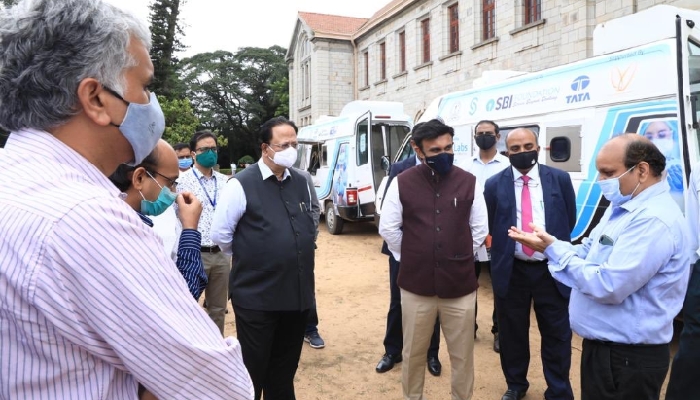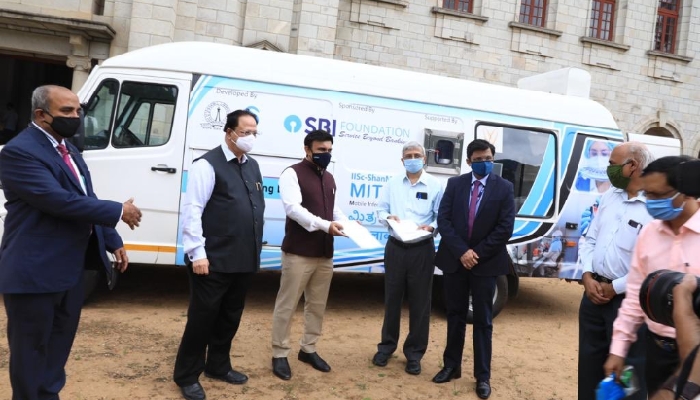Bengaluru, Nov 12: Veteran leader of Bharatiya Janata Party and Union Minister of Chemicals and Fertilizers and Minister of Parliamentary Affairs H N Ananth Kumar passed away in the early hours of Monday after undergoing treatment for cancer at a private hospital in Bengaluru. He was 59.
Kumar, one of the chief architects of Karnataka BJP, was battling cancer for the last several months. Kumar's body, which has been taken to his Basavangudi residence, will be kept for public viewing at the National College Grounds from 8 am onwards.
He had undergone treatment in London and New York, before being flown to the Sri Shankara Cancer Hospital in the city a few days back.
Upon hearing the rapid deterioration of his health, Union Home Minister Rajnath Singh and Lok Sabha Speaker Sumitra Mahajan had visited Kumar at the hospital on October 28.
Speaking to DH, surgical oncologist Dr B S Srinath who heads Shankara Hospital said that Kumar was diagnosed with advanced lung cancer in the month of June.
"After his diagnosis in Bengaluru, he was taken to the Memorial Sloan Kettering Cancer Center, New York, where he was treated. He, however, failed to respond to the treatment, following which was brought back to Bengaluru and kept on life support," he added.
Incidentally, Kumar's wife Tejwaswini is one of the trustees of the Sri Shankara Cancer Foundation.
The six-time Parliamentarian, who had continuously represented the Bangalore South Parliamentary constituency, Kumar began his political career as an Akhila Bharatiya Vidyarthi Parishad (ABVP) leader.
After serving various positions in ABVP like the state secretary and later national secretary in 1985, he decided to walk in the bigger ground of politics by joining the Bharatiya Janata Party in 1987.
His first important role was when he was nominated as the State President of BJP Yuva Morcha.
In 1995 he was appointed as the national secretary of the party. He was elected to Lok Sabha in 1996 for the first time. In 1998 he was inducted into Atal Bihari Vajpayee cabinet as the Minister for Civil Aviation.
In 1999, he became one of the most important cabinet ministers in the NDA government handling various ministries including Tourism, Sports & Youth Affairs, Culture, Urban Development and Poverty Alleviation.
Born in a middle-class family on July 22, 1959, he is the son of Narayan Shastri and Girija N Shastry. Kumar is survived by his wife Tejaswini and two daughters, Aishwarya and Vijetha.







Comments
Inna Lillahi wa inna ilayhi raji'un
It's a shock to me.. He was just 59
Rest in peace
RIP
Add new comment